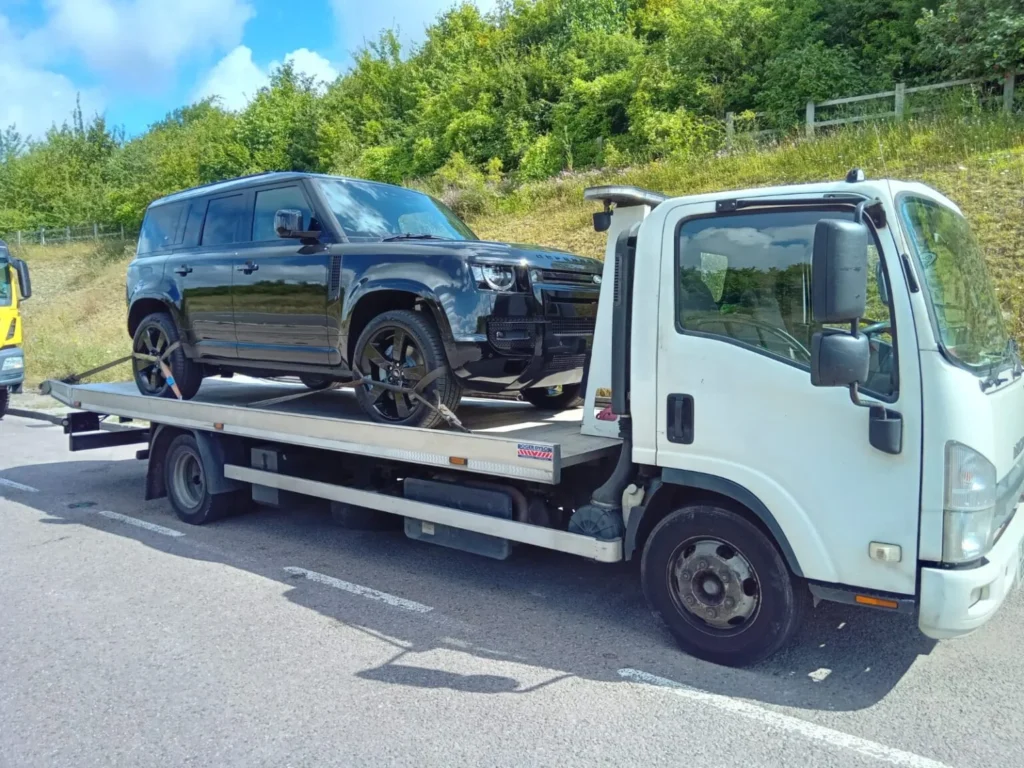
If your car needs to be moved, it’s easy to get confused between car recovery and car transport services. After all, both involve towing or relocating a vehicle — so aren’t they the same?
Not quite.
While the two services may seem similar on the surface, they serve very different purposes depending on your situation. Whether you’re stranded with a broken-down car or simply need to move a vehicle from one place to another, choosing the right option can save you time, stress, and money.
Let’s break down the key differences between car recovery and car transport, so you’ll always know who to call — and when.
What Is Car Recovery?
Car recovery is an emergency service designed to assist drivers whose vehicles have broken down or become unfit for driving. It’s the kind of help you call when you’re stuck on the roadside, facing issues like:
-
Engine failure
-
Battery problems
-
Flat tires
-
Accidents or collisions
A professional recovery team can often perform on-the-spot repairs or tow your vehicle to a nearby garage or safe location. These services are quick to respond and usually operate 24/7 to handle emergencies.
For example, if you’re driving through Bedfordshire and your engine cuts out unexpectedly, a local breakdown recovery Luton provider can reach you faster than national operators — thanks to their local presence and familiarity with the area.
What Is Car Transport?
Unlike recovery, car transport is a pre-arranged, non-emergency service. It’s used to move a vehicle from one location to another — not because it’s broken down, but often because it’s being:
-
Bought or sold
-
Relocated during a house move
-
Delivered to a showroom or auction
-
Moved across cities or even countries
This type of service is usually scheduled in advance and comes with options like open or enclosed trailers. The process may also include extra protection, GPS tracking, and insurance.
For instance, if you’re relocating from Luton to Manchester and want to avoid putting unnecessary mileage on your car, booking car transport services would be the right approach.
Key Differences Between the Two
Let’s make the comparison clearer:
| Feature | Car Recovery | Car Transport |
|---|---|---|
| Purpose | Emergency help during breakdowns | Planned vehicle relocation |
| Timing | Immediate or same-day | Scheduled in advance |
| Vehicle condition | Often not drivable | Drivable or non-drivable |
| Equipment used | Tow trucks, roadside tools | Trailers, ramps, safety gear |
| Booking process | Phone call when needed | Quoted and confirmed in advance |
| Typical destinations | Nearby garages or home addresses | Cross-city or long-distance routes |
So, if your car won’t start in a supermarket parking lot, you’ll need car recovery. But if you need to move your vehicle from one city to another as part of a sale or relocation, car transport is the better option.
In both cases, local expertise can help. Many companies that offer car recovery Luton services also provide long-distance solutions through scheduled car transportation services.
Which One Should You Choose?
To determine the right service for your needs, ask yourself a few simple questions:
-
Is your car broken down or involved in an accident?
→ You need car recovery. -
Is your car working fine, but you want to move it somewhere else?
→ Book car transport. -
Do you need the service immediately, or can it wait?
→ Urgent = Recovery | Planned = Transport
Keep in mind that calling the wrong type of service can lead to delays or additional charges. Recovery teams are prepared for urgent repairs or quick tows, while transport companies focus on logistics, planning, and long-distance moves.
Do These Services Ever Overlap?
Sometimes, yes.
There are cases where a breakdown leads to a transport scenario — for example, if a car breaks down and needs to be delivered to a specialist garage in another city. In this case, a recovery call might evolve into a transport job.
Some companies offer both services, which makes things easier for drivers who need flexibility. A provider that handles vehicle recovery Luton might also be available for long-distance car moves if requested.
This dual-service approach ensures continuity and reduces the need to deal with multiple providers.
What About the Cost?
Here’s how they compare:
-
Car Recovery is typically priced as an emergency service. Charges may include call-out fees, towing distance, and time spent on repairs.
-
Car Transport is quoted per mile or based on vehicle type, transport method (open or enclosed), and delivery schedule.
While recovery is fast and reactive, transport is usually more affordable per mile over longer distances. If you’re not in a rush, it can be the more economical option.
For example, someone needing to move a vehicle across counties may find car transportation services cheaper than using urgent recovery rates.
Conclusion
Though both involve moving your vehicle, car recovery and car transport services serve completely different purposes.
-
Use car recovery when you’re in a pinch — after a breakdown, accident, or mechanical issue.
-
Choose car transport when you need to relocate your vehicle over longer distances in a non-emergency situation.
Understanding the difference helps you avoid confusion, get faster support, and ensure the best value for your money. If you’re in Luton, local providers often offer both options — making it easier to choose the right service without delay.
So whether you need emergency car recovery or planned vehicle movement, you now know exactly which route to take.








